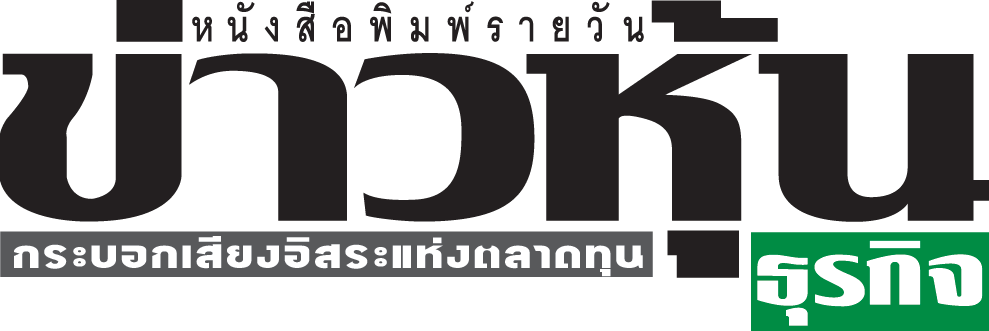
Thai Economy Sees Improvement in June after the Gradual Relaxation of Lockdown Measures
Thai Economy Sees Improvement in June after the Gradual Relaxation of Lockdown Measures.
The Thai economy in June 2020 improved from the previous month after the lockdown easing while economic activities were able to resume their operations, stated the Bank of Thailand (BOT) in the monthly review.
The Bank of Thailand stated that in June 2020, the Thai economy improved from the previous month due to the gradual relaxation of lockdown measures both in Thailand and abroad, supporting economic activities to resume operations.
As a result, merchandise exports value excluding gold, private consumption and private investment indicators, and manufacturing production contracted at a lower rate. Meanwhile, public spending expanded both in current and capital expenditures. Nevertheless, the tourism sector continued to contract substantially due to international travel restrictions.
Overall economic stability remained vulnerable. Headline and core inflations were negative, consistent with weak domestic demand. The number of unemployed persons continued to increase. The current account was balanced. The capital and financial accounts posted a surplus from both the asset and the liability positions.
In June, the value of merchandise exports contracted by 24.6 percent from the same period last year, slightly higher than the previous month. Excluding gold, however, the contraction rate substantially reduced to 18.4 percent from 29.0 percent last month. This was due to the improvement of exports in almost all categories, consistent with improving economic activities in trading partner countries after the relaxation of lockdown measures.
Nevertheless, the contraction rate of merchandise exports value remained high, especially automotive and parts, machinery and equipment, and petroleum-related products, reflecting weakening income of trading partners.
Private consumption indicators contracted at a lower rate compared with the previous month. Spending in all categories improved as a result of the relaxation of the lockdown measures, resulting in an increase in consumer spending outside, coupled with supports from the government’s relief measures.
However, private consumption indicators still highly contracted in line with weak household income and low consumer confidence. Manufacturing production contracted at a lower rate in almost all industries, consistent with the improvement of exports and private consumption.
Private investment indicators contracted at a slower pace compared with the previous month due to an improvement of investment in machinery and equipment from domestic machinery sales, the number of newly registered motor vehicles, and imports of capital goods.
Meanwhile, investment in construction contracted at a higher rate from construction material sales. However, private investment indicators still contracted substantially due to weak domestic and external demand, high excess production capacity, and fragile business sentiment despite a slight improvement.
The value of merchandise imports contracted by 18.2 percent from the same period last year, improved from the previous month in all major categories including consumer goods, raw materials and intermediate goods, and capital goods. This was partly as a result of the low base effect last year and the recovery of overall economic activities.
Public spending, excluding transfers, expanded from the same period last year both from current and capital expenditures. Current expenditures slightly expanded from purchases on goods and services. Capital expenditures highly expanded due mainly to disbursement of the central government for road maintenance. However, the state enterprise’s capital expenditures contracted.
The number of foreign tourist arrivals continued to contract extremely at 100 percent from the same period last year. There were none of the foreign tourist arrivals for the third consecutive month due to Thailand’s inbound travel restrictions.
Overall economic stability remained vulnerable. Headline inflation remained negative, although edging up from energy prices due to an increase in domestic retail petroleum prices. Core inflation was slightly negative, consistent with weak domestic demand.
The labor market remained vulnerable as partly reflected by the continued increase in the number of jobless claims on the social security system. The current account was balanced.
The capital and financial accounts posted a surplus from both the asset position owing to the net sell in debt securities and the withdrawal of deposit abroad by Thai investors, and the liability position owing to the net buy in debt securities by foreign investors.
Overall economic activity in the second quarter of 2020 substantially contracted as a result of the strong implementation of COVID-19 containment measures in both Thailand and abroad, temporarily disrupting economic activities. External demand contracted sharply both in the tourism sector affected by international travel restriction measures, and merchandise exports affected by weakening trading partner demand. Consequently, domestic economic activities were affected especially private consumption and private investment indicators as well as manufacturing production.
However, public spending expanded and played an important role in supporting the Thai economy. On the stability front, headline inflation was negative mainly from a decline in energy prices, while core inflation was slightly positive.
The current account posted a small deficit compared with a large surplus in the previous quarter, attributed to a drop in tourism sector receipt coupled with the seasonal remittance of profits and dividends by foreign businesses operating in Thailand. The capital and financial accounts registered a surplus from the asset and the liability positions.


